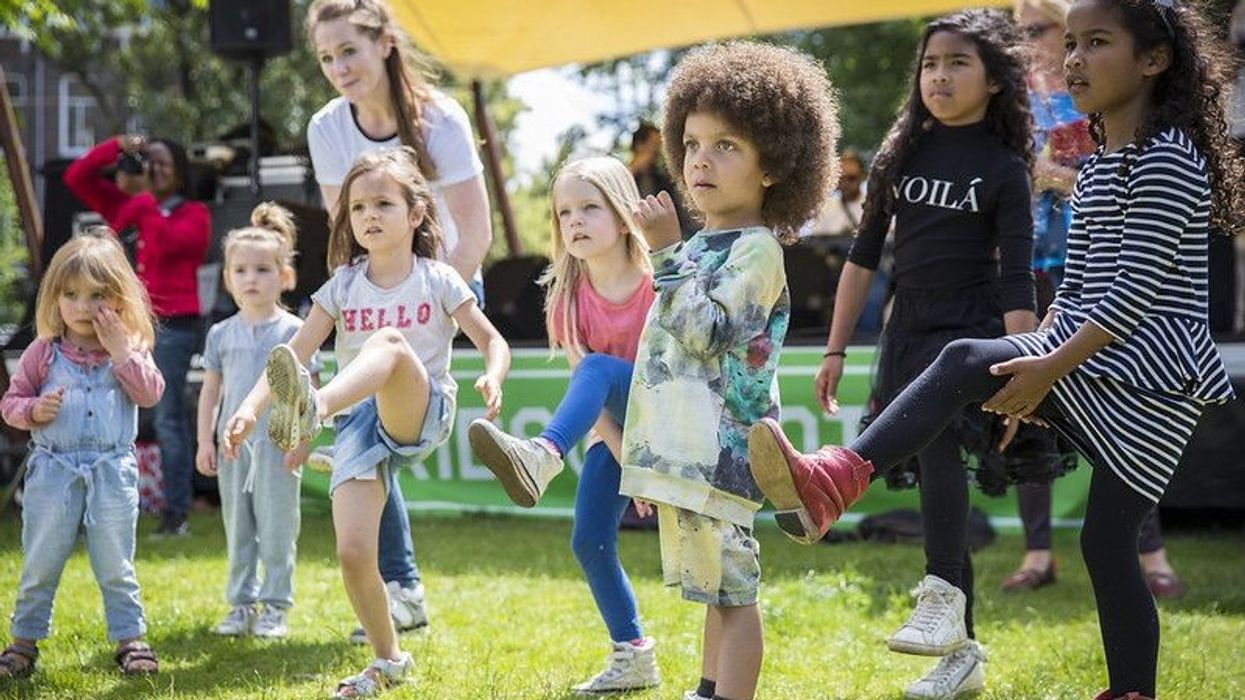Siblings often argue, and that's totally normal! Extra time together might lead to more tiffs, creating stress and stirring up a mix of emotions.
And although parents will usually have their own techniques on how to put a halt to the fighting, if you're finding it harder than usual, it might be time you checked out our best tips to guide siblings toward harmony.
Don't compare your kids to one another
Whilst it's important to praise one child for doing something good - it is also important not to use this against your other child. For instance, asking one of your children: "why do you shout so much?
Your sister doesn't shout like you!". In doing this, you might think you're motivating the child to stop shouting, however, what they hear is that the sibling is better than they are.
So, top tip number one is to set the necessary limits for each child's personal needs without reference to the other. When you take sides, you build resentment against the 'well behaved' (in this case) sibling.
Encourage them to be a team
If you're struggling with arguing between siblings, it's really important to give them lots of praise and attention when they're working together as a team! Why not try being creative in your rewards?
Try to avoid confrontations by setting up a 'teamwork jar' - add a coin to the jar every time they show love and respect for one another and take them away when they argue.
Then, when they decide that they have enough coins to buy something - they can decide together what they'd like to buy. This tip is perfect for kids of 8+ for them to also gain an understanding of monetary rewards for hard work, as well as generosity with money.
Make sure your kids each get enough personal space
Remember that children will have their own unique personality traits, and while some kids are happy to spend all of their time with family, others may need some alone time. Either way, to encourage them to stop fighting, it is healthy for any sibling relationship to spend some time apart.
Siblings have to share parents, toys, family time, the spotlight, and their own little worlds, this is a whole lot of sharing!
While sharing is an important skill for kids to learn, for some, sharing a bedroom may be too much, especially for children who have very different temperaments. Again, if your living space doesn't allow for two separate bedrooms, try getting a bit creative by making their own personal spaces within the room.
For instance, set up a tepee or a reading tent for them to retreat to!
Remind them that they are loved
If your children are secure in the knowledge that you love them equally despite their differences, it will help to reassure them and, in turn, avoid any feelings of jealousy! So, the tip here is to first focus on strengthening your relationship with each child.
Make a conscious effort to do separate games or tasks with each of them and make the one-on-one time feel special. Lots of laughter and affection is important here!
Children have this quality time with parents are happier and emotionally healthier, and this will have a long-lasting effect on their relationship with their siblings. Every child needs to know that there is enough love to go around.

Teach empathy in your kids
This is a really important skill for all aspects of life - but will play a huge part in protecting sibling relationships. Comment on other kids' feelings, for instance, if they are fighting and one of them gets upset, say "look, he/she is crying, do you know why?
I wonder if we can sort this out to try to make them happy again".
Using constructive talk will help to remove blame and the feeling of punishment and instead will help to focus on how to make things right!
In an argument, remember that there are always two sides, so whilst encouraging empathy for the upset one, remember to do the same to the other. By offering your children empathy for their own feelings, it will help to build the foundation of their developing empathy for each other.
Keep tired and hungry kids apart
One way to avoid situations that create fights is to keep them apart when an argument feels like it's imminent! If kids are tired and/or hungry, they're bound to be in a bad mood and that is asking for trouble!
One place this is particularly important is in the car. Car journeys will make children feel tired and bored, so try to separate kids in the car as much as possible.
If they do have to sit next to each other, give them separate things to do, such as iPods or even separate games to play.
Aside from car journeys, fights are likely to start before mealtimes when they're hungry. Juggling between making the dinner and encourage separate play can be challenging - but it'll be worth it to maintain the happy dynamic for the evening!
Don't give older siblings responsibility for the younger ones
It can be difficult having kids with a larger age gap, as they may not be able to play with each other as much as you'd like!
This might put more pressure on you to entertain them separately, but if you do get caught up doing something else - try not to ask the older sibling to watch over the younger one!
Despite the age gap, it is important to maintain a sibling relationship instead of developing more of a parent-child relationship.
Naturally, the older sibling will have a better understanding of things and may want to teach the younger one, but if they do enforce family rules, try to constructively ask them not to.
Thank them for following the rules and for trying to do the right thing, but remind them that it is up to you as a parent to discipline - in order for them to maintain a healthy relationship!
Whilst the age gap may be very noticeable now, remember that in 15 years they will seem the same age, so it's important for them to maintain this mutual respect for later on.
Encourage communication, but set definite limits
Kids, as well as adults, are entitled to their own feelings about things that not everyone will understand! But all humans, even little ones, should be held responsible for how they communicate those limits to other people.
For example, if one of your kids is protective over a collection of theirs, they have to right to get upset if someone messes with it.
However, what they do need to know, is that if this incident does occur, that they should express their feelings with constructive feedback instead of rude words and physical violence.
Give examples to them on how to deal with this situation: "when you touch my car collection I get upset because I spend lots of time organising it. Can you ask me if you want to look at them?"
Teach your kids healthy self-management techniques
This can be a challenge because it takes a lot of internal processing within the moment - but also because so many adults haven't even mastered this skill yet!
Whether you have mastered it or not, try to think logically when teaching self-management techniques to your kids. You will spot patterns in the things that they get angry about and how they release it, so try to let them know what you've noticed and inform them when they're calm.
If this sticks in their head the next time they get angry, what you said may just click!
Ideas for dealing with anger will vary on your child's unique personality and only people close to them will know what's best. But some examples of self-management techniques include: playing their instrument, doing some exercise (if they're older), writing it down, listening to music or meditation!
For help and guidance on how to practise yoga, meditation and mindfulness for kids, check out Kidadl's posts here.








